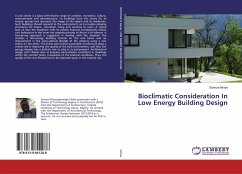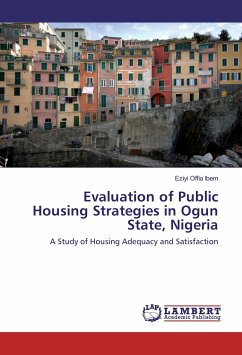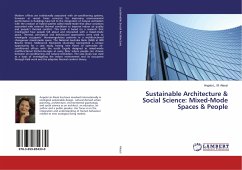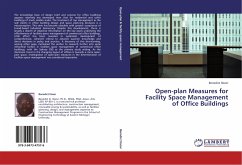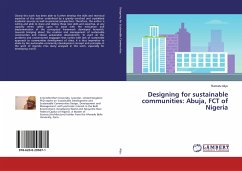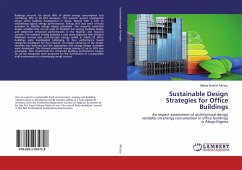
Sustainable Design Strategies for Office Buildings
An impact assessment of architectural design variables on energy consumption in office buildings in Abuja-Nigeria
Versandkostenfrei!
Versandfertig in 6-10 Tagen
55,99 €
inkl. MwSt.

PAYBACK Punkte
28 °P sammeln!
Buildings account for about 40% of global energy consumption and contribute 30% of all CO2 emissions. This research project investigated extant office building development in Abuja, Nigeria with a view to establishing typical energy performances. Energy end uses were critically analysed to identify energy saving potentials. The research evaluated design variables that can be used to facilitate low energy building design and determine enhanced performances in the Nigerian and regional context. The research initially adopted a case study approach that involved fieldwork surveys and walk-through ...
Buildings account for about 40% of global energy consumption and contribute 30% of all CO2 emissions. This research project investigated extant office building development in Abuja, Nigeria with a view to establishing typical energy performances. Energy end uses were critically analysed to identify energy saving potentials. The research evaluated design variables that can be used to facilitate low energy building design and determine enhanced performances in the Nigerian and regional context. The research initially adopted a case study approach that involved fieldwork surveys and walk-through energy audits in which 22 office buildings were investigated belonging to four performance based categories developed for the research. An impact hierarchy of the design variables was deduced and the appropriate low energy design strategies were developed. This showed potential energy savings of up to 20% was achievable. Also benchmarks for enhanced building performance targets for all the categories were proposed for the furtherance of a sustainable built environment in a developing world context.



